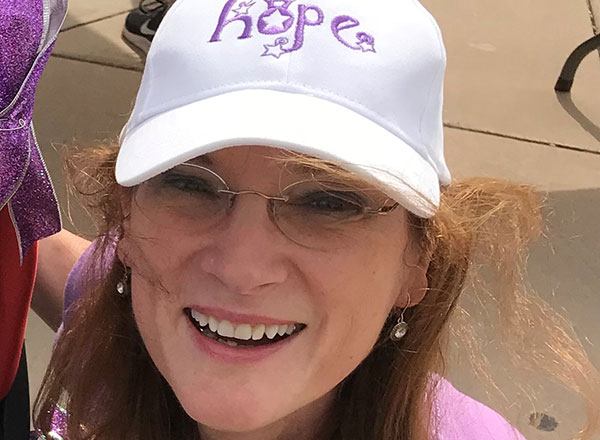What National Cancer Survivors Day Meant to Me
When A Doctor Has Cancer
by Wendy S. Harpham, M.D.
Editor’s Note: This survivor story originally appeared in the Fall 1992 issue of Coping®.
National Cancer Survivors Day (NCSD). This year I learned the real value of this important day.
I first became aware of NCSD in May of 1991, at the end of seven months of intensive chemotherapy. Dazed and weak from the morning’s treatment, I noticed a confetti and balloon-bordered announcement on the door as I left my doctor’s reception room. Did I want to go? Choosing to attend a NCSD celebration would mean accepting once again that I was a cancer patient.
It was not to be. I could not attend any celebration. My blood counts were too low, and I was having other medical problems that made celebrating out of the question. “Next year,” I thought, “I will celebrate.”
My loss meant that I could stay at the celebration as long as I liked. But what would I be celebrating? Should I even go?
I joined a support group, where I was comforted by the knowledge that post-treatment physical and emotional problems are common, even expected, during the first year in remission. Reopening my private practice was healing, as I found new meaning in each encounter.
There were numerous responsibilities among which I divided my ever-increasing energy. Preparing my book, Diagnosis: Cancer, Your Guide Through the First Few Months for publication, which I wrote during the months of my chemotherapy, was consuming more time and energy than did the writing of the original manuscript. Carpooling, the gym, children’s bath-and-bedtime rituals reentered my daily schedule. And I continued to read, talk, and write about cancer and cancer survivorship.
My April check-up and scans were all clear. As flyers for NCSD 1992 appeared on doors and walls, I envisioned my fit and curly-topped self encouraging newly-diagnosed patients by example and with my book. An invitation to speak at one celebration was declined because I was scheduled to be “on-call” for my patients and had to be free to leave on a moment’s notice. Life was indeed full and wonderful.
Two days before NCSD, a biopsy unexpectedly revealed recurrent cancer. This recurrence necessitated my closing my practice. Unexpectedly, I was “off call.” My loss meant that I could stay at the celebration as long as I liked. But what would I be celebrating? Should I even go?
On the morning of the event my husband, three kids, and I piled in the car and headed towards the hotel sponsoring NCSD 1992. My biopsy incision was throbbing. Colorful arrows showed us the way to balloons, music, clowns, a kiddie train, and frozen yogurt. Many people from my support group were there, smiling, hugging, and laughing. I thought how this NCSD was supposed to be my celebration of being one-year cancer-free, not my beginning of another journey with cancer.
We were proud of where we had been. We were less afraid of where we were going.
A bubbly man from my support group confidently asked me the results of my little biopsy. He had a big, expectant smile. “I have cancer again,” I said. I tried not to cry. He tried not to cry. Word of my recurrence filtered to the members of my support group. The nurses already knew. Love, concern, and encouragement by people who knew what this was all about filled my spirit. These people were genuinely pained by my recurrence. They knew what to say and what not to say. The tears dried; the smiles returned.
NCSD 1992 helped me deal with my recurrence, helped me see it as just more chapters in my life, one more section in my next book, one more part of being a cancer survivor. On this happy day in early June, my family and friends were nourished by the sharing and caring. We were proud of where we had been. We were less afraid of where we were going.
We knew that this celebration had accomplished worlds of good when one survivor’s little boy proudly exclaimed, “My daddy had cancer, too. And he’s fine now.” The little boy was not afraid, nor alone. Neither was I.
Dr. Harpham’s 1992 recurrence was the first of many. Forced by illness to retire when only 38 years old, she has dedicated herself to helping others through her writing, speaking, and patient advocacy. Now a grandmother of five and grateful to be growing old, Dr. Harpham is in complete remission. Her website (wendyharpham.com) offers links to her blog, articles, award-winning column in Oncology Times, and her 8 books on survivorship (including the free e-book, Finding Hope That Heals). You can connect with Wendy through Twitter (@WendyHarpham), Facebook (@DrWendyHarpham and @WendyHarphamMD), and Instagram (@WendyHarpham).
This article originally appeared in Coping® with Cancer magazine, Fall 1992.
Everyone has a unique story to share. Do you want to share your survivor story? We consider a cancer survivor to be anyone living with a history of cancer – from diagnosis through the remainder of life. Here are our submission guidelines.


